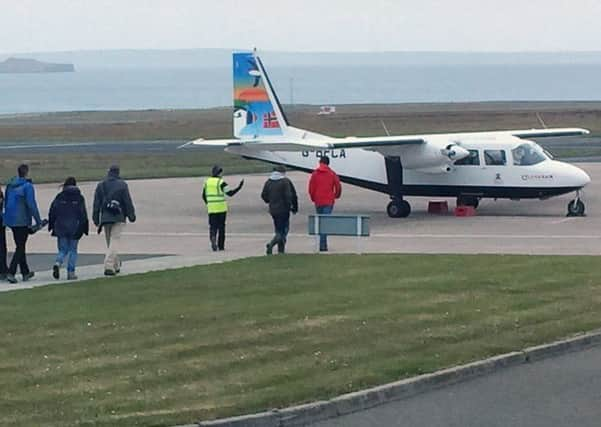Birdwatchers flock to Orkney to spot rare blackbird


The North Ronaldsay Bird Observatory said up to a hundred ‘twitchers’ journeyed from as far afield as Devon and Dorset to try and spot the bird, native to North America, outnumbering the current permanent population of 72.
The red-winged blackbird, thought to be the most abundant living land bird in North America, usually migrates from South America to the Northern United States during the spring months.
Advertisement
Hide AdAdvertisement
Hide AdHowever, the Observatory believes strong winds over the Atlantic Ocean are responsible for a female of the species being blown off course and landing on the island. Some twitchers chartered flights from Kirkwall, while others flocked to the island - the northernmost in the Orkney archipelago - from as far south as Bristol.
George Gay, volunteer at the Observatory, said he was “unsure” how long the bird would remain on the island but described its presence as “hugely exciting.”
He added: “It’s not clear how long the bird will be here. It could be a few weeks, it could be a month, it could be gone by morning, there are so many factors to take into account.”
“She’s obviously become hopelessly lost, there’s a possibility she has been blown off course, whatever has happened it’s hugely exciting.
“We’ve had maybe a hundred people coming from all over the country, some came from Devon, I spoke to one twitcher from Dorset who’d made the trip up overnight.”
The sighting comes after RSPB figures confirmed a record-breaking number of migrating birds had been recorded on the Hebridean island of Tiree this year.
The society said 2,270 black-tailed godwits – some of which migrated from Spain, Portugal, France and Iceland – spent time on the island this spring, almost twice as many as the previous record of 1,320 in 2013.
The majority of the birds recorded by experts over the past calendar year were found in a tiny field just outside the village of Kilmoluaig on the island.